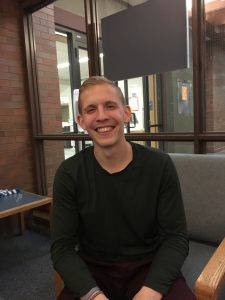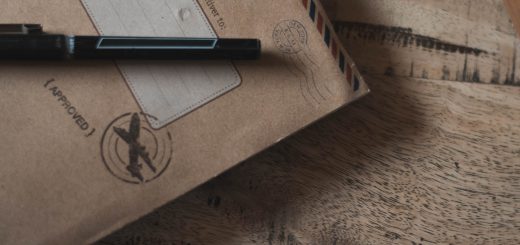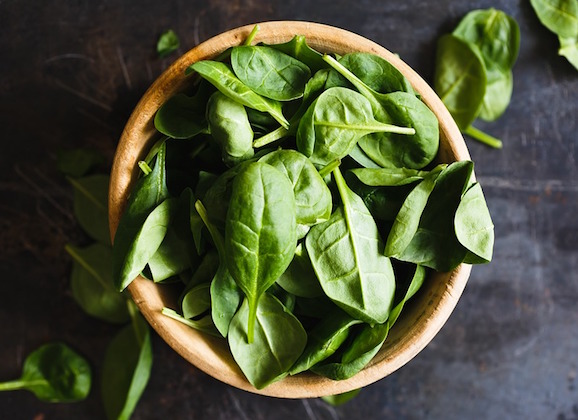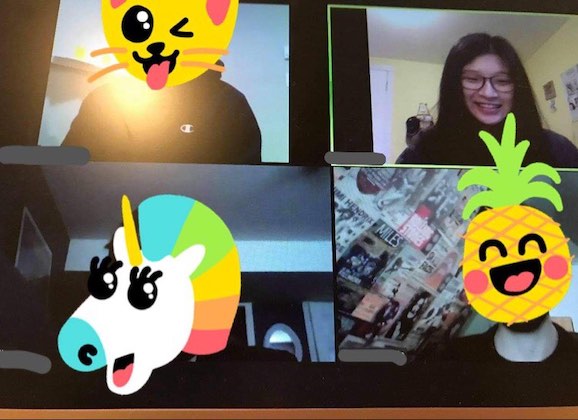Manaajidiwin/Go Easy on Each Other
Every week I go to the language table at First Peoples House to learn Anishinaabemowin (Ojibwe) and talk like a toddler.
The folks that sit around the table are warm, funny and encouraging. Regardless, it’s rough. Some words are 27 letters long. Why have Anishinaabe folk turned their backs on the letter F? There is no letter F! But there is always a mittful of Z’s.

Reading legal research bedtime stories. It works great, the kids were asleep by the second paragraph!
When I do have the courage to butcher a few words aloud, I am afraid that I sound unintentionally racist because I am so bad. It’s hard; it’s hard to use your voice in a unfamiliar language that you should know by virtue of your birthright.
As I have shared; this is a season of humility. These days I pretty much get most things slightly wrong. These would be magical words for my children to read. But they can’t read yet because I am a terrible mother and haven’t taught them, because I’ve been too busy teaching myself to read legal research.
My new best friend, Discomfort, and I were excited to learn yet another thing that we didn’t quite “get.” I thought that the JID program would be filled with a bunch of Native kids. And lots of us are. But not all of us are kids, and not all of us are Native. Our class is also composed of good settler allies who have taken on the responsibility of this program alongside us.
Betty Ann
I met up with Betty Ann, who is in the JID program, to have a chat about what it’s like to be back in school as an adult.
Betty Ann’s family is from Cote First Nation, Saskatchewan. Betty Ann has left her career, partner and beloved pets behind in Alberta in order to be in the JD/JID program.

Betty Ann had been working with Native Counselling Services of Alberta as a family/youth worker as well as being a coordinator for a restorative justice program. She became frustrated by watching her clients become part of an indifferent at best legal system that has limited cultural competency in Aboriginal legal traditions.
Her role as a court worker didn’t allow her the scope to effectively advocate for her clients. When the JID program received funding, Betty Ann felt it was worth a shot in applying. “I know the court system, I know what to expect. Knowing the shortcomings prior allows me to take full advantage of the program. I will now be able to take a more active role for my clients. I can move beyond being an agent of the court into becoming a strong advocate for Aboriginal clients.”
Betty Ann’s voice will have further reach and carry greater power. The process to applying to law school is daunting. There is no way around that. We both agreed that the welcoming approach that the admissions folks have encouraged both of us to keep going throughout the process. As Betty Ann says “you just have to start, put the action behind the words, age and background are assets that can work for you. More times than not, it all falls into place.”
Like all of us in the JD/JID program, Betty Ann had a pretty tight turnaround time between her acceptance and the start of the program. “I was apprehensive about all of the logistics of securing housing, packing up, figuring out a plan for my partner and I.”
Betty Ann sees her biggest challenge right now is figuring out how to create routine in the midst of changing class schedules, evolving syllabuses, and the growing pains of being part of the first cohort of a new program. Yet, Betty Ann shared that she feels “gratitude that I get to be part of something that is cutting edge and that will enable me to graduate with two degrees. Yes, it can be a bit challenging in figuring out your bearings when you’ve been out of school for awhile. But I feel included within the program and amongst my classmates.”
Sam
My friend Sam and I sat down in the lounge of the Fraser building and spoke about how we ended up in the JID program and what may lay down the road.
I really need to take a moment to correct any misconceptions about the idea that law school is fancy. Our lounge is so dated that I am sure there must be quaaludes older than I am stuck in the seat cushions. It looks like a guidance counsellor furniture warehouse.

Of our mighty class of 26, Sam is a settler and is one of six males. He shared that “the process of applying was something that I deeply grappled with, because I was concerned about what accepting the space may mean for someone else who was equally deserving to be in the program. IS this a space that I should be in?”
Sam had the opportunity to think “deeply about the concepts of the ‘white saviour’ mentality, about the difference of working with vs working for” through extensive international work alongside an Indigenous community in Peru.
Sam says that the experience “really informed my learning and approach to knowledge sharing.” This went a long way in helping him make the decision to apply. Sam believes that lawyers should be driven by an honourable code of conduct that is not overtly influenced or driven by personal gain.
Sam views the JD/JID program as a values-driven degree and, as such, is aligned with his own personal ethos. So what does a non-Aboriginal man need to know before coming into the program? Sam believes that it is vital to know the space that you’re walking into.
As he says, “I actively benefit from aspects of my identity so I have to actively confront aspects of my identity. It’s key to think about unquestioned assumptions. For example, you’re not going to get anywhere talking about gender if you’re framing it as an either/or. Yes there are times when it will feel uncomfortable, but that doesn’t have to mean it’s bad. Allies are welcome. I feel welcomed and valued.”
The fact is, law school is tough enough as it is, why participate in a program that necessities the work of internal reflection? He says, “it’s rewarding to learn in a way that compliments my value system and having my values align with my actions. By considering this program alone is a strong statement of who you are. Your knowledge is needed and valued.”
I asked Sam about new challenges that have emerged for him now that we are a couple months into our first year. He shared, “there is something that tied into the expectations that folks have about law that creates an environment that’s all consuming. My identity becomes ‘the law student, the lawyer’. So I am really contingent about the need to maintain outside interests.”
Like Betty Ann, Sam touched on the sacrifice that he has made in leaving his partner and family. Sam shared a really significant observation;”regardless of the diversity of backgrounds that our class is made up of, our commonality and connection to the program can be found in the value that we place on community. It is also the one common sacrifice that all of us share. For folks like us that derive a strong sense of identity from community, this sacrifice is acutely felt “.
Manaajidiwin
As I began working on this piece, new favourite word, Manaajidiwin (go easy on each other) came to me again and again. In this season of humility, where nothing feels quite right nor wrong, the one thing we can do with confidence and conviction is to Manaajidiwin.




Hi I’m interested in learning Anishinaabemowin! I didn’t know there was a language table – but I would like to know more. My family was enfranchised from the Alderville FN in the early 1900s and I’ve never been to Ontario. Thanks, Heather
Bozhoo Heather!
The table gathers at First Peoples House every Tuesday at 5:15. Listen for the laughter and it will lead you to the right room.
Lisbeth